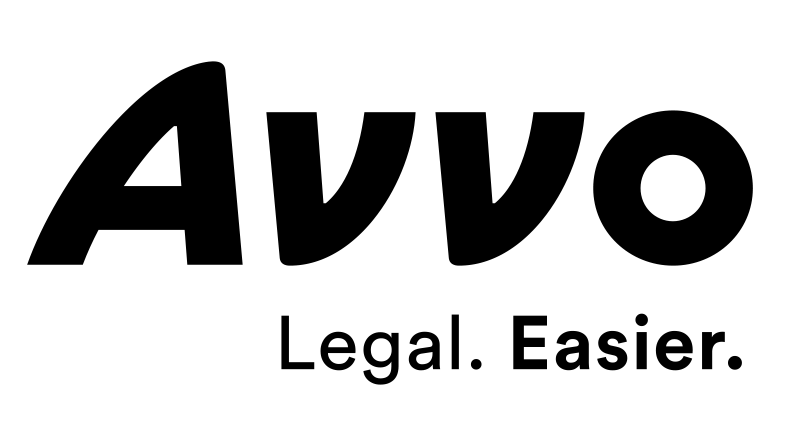faq
Frequently Asked Questions
Matters related to probate, estates, and trusts can be overwhelmingly complicated, and individuals with questions related to these matters often find themselves unsure of where to turn for the answers and information they need. As such, the dedicated legal professionals at Bercik Law have created list of frequently asked questions and their answers to help individuals who find themselves in this situation.
The dedicated legal professionals at Bercik Law, have created the following list of frequently asked questions and their answers to help individuals who find themselves in this situation.
If your question isn’t here, or if you need to speak with a lawyer about the specifics of your situation, please don’t hesitate to contact Bercik Law at 732-483-6300 today.
What are my rights if I was disinherited?
As a general matter, anyone can disinherit a relative, even a parent or child.
A will would be invalid if procured by fraud (by lies; e.g. by lying about what someone was signing to get them to sign a new will); by undue influence (if the person making the will, is particularly dependent on someone, like a caregiver, and that person uses his/her position of power to get the weaker person to change the will); or by duress (threats or pressure).
However, there are protections if you are a spouse, civil union or domestic partner. If you believe there is wrong doing seek legal advice soon.
How much time do I have to contest a will?
Generally, a complaint to contest a probated Will is only 4 months after probate or of the grant of letters of appointment, or if you reside outside NJ the time is extended 2 additional months.
If you think you may need to bring a will contest in a New Jersey court do not delay. Seek legal advice quickly.
What can I do if the executor refuses to communicate with a beneficiary?
If you are a beneficiary under a will and the executor refuses to provide a copy of the will or discuss your inheritance, then you make a formal request in writing.
You should advise the Executor of the consequences of not disclosing information.
The next step would be to seek legal advice regarding court action to compel the executor to provide information or ask the court to remove the executor from office.
What is a Durable Power of Attorney?
A power of attorney is granted to an “attorney-in-fact” or “agent” to give that individual the legal authority to make decisions for an incapacitated “principal.”
If the power of attorney is “durable” this means the ‘agent’ retains the powers granted even if the ‘principal’ becomes incapacitated.
Can a person with dementia make a will?
In order for a will to be valid, the person signing must have “testamentary capacity,” which means he or she must understand the implications of what is being signed. If you have a form of mental illness or disease does not mean that you automatically lack the required mental capacity.
If you have periods of lucidity in some circumstances you may still be competent to sign a will. It is best to have an attorney evaluate your specific situation.
What is an Advanced Healthcare Directive?
An advance directive is a legal document that can help ensure your preferences for various medical treatments are followed if you become unable to make your own healthcare decisions.
Your advanced directive only goes into effect if your physician has evaluated you and determined that you are unable to understand your diagnosis, treatment options or the possible benefits and harms of the treatment options.
What is a POLST?
Practitioner Orders for Life-Sustaining Treatment or POLST is a healthcare planning tool that allows patients and families to work closely with their doctors and medical team to detail personal goals and medical preferences when facing a serious illness.
When should a guardian be appointed for an adult?
A guardian is needed if a person cannot make, and doesn’t understands the nature of their decisions, and cannot communicate the decisions to others.
When a guardian is appointed, that mentally incapacitated person (also called the “ward”) loses the right to decide where to live, how to spend money, vote, marry or undergo medical treatment without the approval of the guardian.
What is a Health Care Proxy?
It is a legal document in which you appoint an agent to legally make healthcare decisions on your behalf, if you are incapable.
What happens if I don't have a Health Care Proxy?
If you do not have a health care proxy and you lack capacity the court may appoint a special medical guardian to act on your behalf regarding medical treatment if immediate medical treatment is necessary to deal with a substantial threat to the patient’s life or health.
This could happen, for example, when some trauma or injury has rendered you unconscious or mentally incapacitated. Preference is given to family members in the appointment of a special guardian.
Not only could this be expensive process, but there is also the risk that an appointed guardian might make different decisions than you would make for yourself.
Which individuals can order a New Jersey death certificate of a deceased person?
In New Jersey, certified copies of a death certificate may be issued only to the following individuals the decedent’s parent, legal guardian, or legal representative, spouse or civil union partner, adult child, grandchild, or sibling.
How do unmarried couples inherit each other's estate if we die without wills?
State law dictates who inherits your solely owned property after death if you pass away without a will.
If you are in a relationship with unmarried partner, he or she will have no rights to your assets and will be far from first in line to administer your estate.
Instead, your closest relatives, including your parents, sibling or children would inherit even if they are estranged. There are methods to protect yourself and your partner. Call for a consultation!
How is an executor appointed?
A person can be named as the Executor in a will. This is usually someone the deceased trusted to manage his or her estate fairly and efficiently.
Generally, a party nominates a proposed executor in their will, and the Surrogate’s court formally appoints the nominee as Executor when the will is admitted for probate.
What is a fiduciary relationship?
A fiduciary relationship may be assumed where the fiduciary has superior knowledge and training compared to the person whose affairs the fiduciary is handling.
Such as between an Executor and a beneficiary under a will, a trustee and a beneficiary under a trust, or a doctor patient relationship.
Any relationship where the fiduciary is in charge of managing the principal’s interest, a rand where one party places special trust, confidence, and reliance in and is influenced by another who has a fiduciary duty to act for the benefit of the other party.
Disputes can easily arise and lead to a situation where litigation is necessary. If you have questions regarding fiduciary relationships and litigation, discuss your situation with an experienced attorney today.
What is undue influence?
If a will is obtained by undue influence, the courts require a showing that the will of the testator is subjugated to the will of another.
Such subjugation is shown through acts or conduct that overcome the free agency of the testator. It must be proven that the testator disposed of his or her property in a manner contrary to and different from the disposition that would have occurred had there been no such undue influence.
The result is often people being excluded from a will, giving most, or all, of the estate in question to the person influencing the writer.
Using undue influence to skew the terms of a will or trust is illegal, and those who think they have been victimized by coercion may be able to hold the guilty person, or people, legally accountable.
How can I settle an inheritance dispute?
Death is agonizing enough without the added pain of heir warfare.
Estate administration is equal parts legal and personal, with often-jilted beneficiaries mounting challenges intended to use material assets to alleviate emotional wounds.
Sharing with your heirs and beneficiaries your intentions and hopes for their future can head off later disagreements as to what Mom or Dad “really” wanted. Being alert to the potential for disputes, for example, in cases of entrenched sibling rivalry or family feuds, can be invaluable information to give to an estate planning attorney to ensure your documents are drafted to limit the possibility of challenge.
Having an attorney evaluate the circumstances of your dispute, as well as the details of the will or trust in question, can be one way to ensure that your rights to an inheritance have not been unduly compromised.
My parents didn't leave a will, but I think that I should get the estate. What can I do?
If there isn’t a will when someone dies, their money, property and possessions will be shared out according to the law instead of your wishes.
It doesn’t matter what your relationship with those people was like when you were alive, the law decides who gets what and how much.
When parents do not leave a will, it’s common for the surviving family members to engage in legal disputes over how the estate is divided.
Estate litigation, where a court supervises and rules over the terms of property and asset allocation, can help settle these differences between siblings and family members. In these cases, it’s important to have a qualified attorney at your side.
How much will my case cost me?
The best way to estimate your overall costs is to have a conversation with your attorney as soon as possible.
This conversation can establish any set fees or costs for legal services, as well as anticipate possible changes that might add financial commitment. In fact, one of the first questions we recommend asking is what their fees are, and if those fees are affected by the case’s outcome.
Each individual case is different, so your costs will likely vary from someone else’s.
When is a will invalid?
Some of the most common reasons a will is declared invalid include the writer being declared incompetent or mentally ill.
There must also be an absence of fraud and undue influence, in other words, the writer/testator must not be coerced into writing a fraudulent will.
Additionally, the validity of a will is called into question when the terms of the will are not properly executed.
If you suspect that you have been affected by any of these examples, then you may be able to question the validity of a will with the help of an experienced attorney.
What should I ask before hiring a probate attorney?
These questions will give you some sense of the way an attorney conducts their practice. Additionally, asking similar questions can help you find the legal representation that best suits your needs.
- Have you argued and won cases similar to mine in the past?
- How much do you charge?
- Do your fees vary?
- Are you easily accessible?
- Are you comfortable doing appeal work?
How can an executor act in bad faith?
The Executor has a fiduciary responsibility to the beneficiaries under a will. If he violates some law, misappropriates or fails to protect the estate’s assets, or uses the assets for his own financial gains, he has failed to execute those duties.
An executor may have acted in bad faith if he or she, fails to accurately represent a will’s final testament, lies about what’s contained in the will, forges a different will, or acts in some other way that does not represent the writer’s actual wishes.
The beneficiaries have legal recourse and you are allowed to question the validity of a will if you suspect the executor of acting in bad faith.
Why hire an estate litigation lawyer?
Disputes arise quickly in these situations, and the interests of those involved are often at risk.
For conflicts during the probate or estate administration process, it is essential to have an estate litigation lawyer in order to ensure that your needs are fully represented.
Having the right attorney ensures you and your loved ones are fully protected.
What is the difference between a conservatorship and a guardianship?
Both conservatorships and guardianships entail a legal relationship between an individual who is not fully able to care for themselves and an appointed caretaker.
A conservatorship is established to manage the affairs of those who can no longer make their own decisions about finances. An adult guardianship is established for incapacity adults who are in comas, suffer from advanced Alzheimer’s disease, or have other serious illnesses or injuries.
A guardianship is also used to provide care for a minor to assure their health, safety and welfare needs are met and their rights are protected.
What is a trust?
A trust is an agreement which allows a third party to administer another’s property or bequest.
It can be created through or independent of a will. Such an agreement can be established for minor children or others who are incapable of managing their affairs or bequests.
The party appointed to administer this property or bequest is called a trustee. A trust may be established in a will, in which the deceased places his or her property in a trustee’s control until beneficiaries come of age, or while the settlor is still alive, for reasons that can range from reducing tax liability to physical or mental incapacity.
If I think my parent was coerced into dividing their estate against their will, what can I do?
Elderly individuals with substantial assets may be coerced into creating a will that does not reflect their true intentions.
Sometimes it is because they are not of sound mind or sometimes it may be because they fear for their own safety.
Regardless of why they may have done so, in situations where children believe their parents may have been coerced into creating a will, it may be necessary to pursue estate litigation to ensure that the rights of those involved are protected.
When is a trust invalid?
A trust can be invalid for many reasons. For example, if it is forged, falsified, created through deception or intimidation, or later revoked at a future date then it might be invalid.
There are ways to investigate a trust’s validity, with these issues often going through the litigation process to reach a decision regarding the trust and beneficiaries’ rights.
If you believe a trust is invalid, speak with a lawyer from Bercik Law today.
Why do misinterpretations of wills and trusts occur?
Misinterpretations of wills and trusts occur all the time and there can be a number of reasons this happens.
In some cases, the person making the will or trust was not of sound mind; in others, the wording of a will or trust is vague or unclear.
More rarely, though it does occur, a misinterpretation is the result of a deceptive trustee or manager of a will, who wants to misappropriate funds for their own use.
To inquire more about these issues, talk with an experienced attorney from Bercik Group today.
I've been named a trustee; do I have to accept the responsibility?
A trustee is often a person chosen to manage a trust fund for one or more beneficiaries after someone dies.
It is an important job, but you are not required to accept the responsibility just because someone name you a trustee. You can refuse the position.
Even if you accept the position initially, you can later decide that you are not willing to continue, but it is much more difficult to leave the position like this than to turn it down before you got involved in the process.
I'm scared I'm going to make a mistake as a trustee, can you help?
Trustees are given a litany of important responsibilities, and the job can quickly feel overwhelming for many individuals.
Mistakes are common, but you can avoid them with the help of an experienced probate and trust administration attorney.
With the advice of your legal team, we will walk you through the process, so you will understand your obligations as a trustee as we guide through your role in trust management.
When can I expect my compensation?
It is difficult to assess when an individual will receive compensation, unless a court mandates the date receipt will take place.
However, assuming you win your case, your trust or probate attorney should be able to give you an idea of when to expect payment.
I don't think I can afford a lawsuit, should I just deal with the situation?
Most attorneys will be upfront about costs, and will not charge you for certain things if your case does not work out.
It is important to discuss your legal options with a lawyer before you rule out the possibility of using one. Many people believe a lawyer is out of their financial reach, but that is just not true.
I don't have time to file a lawsuit, what can I do?
It’s common to think “I don’t have time” for probate, trust, or estate disputes; however, almost all the work is done by your attorney and legal team.
Get in touch with a lawyer at Bercik Law because you may be due compensation that won’t take much of your time to obtain.
How do I know I will receive individualized attention?
Although we manage many clients, we are committed to providing personalized attention to them and their cases.
Each case involves a unique set of circumstances and obstacles that must be met with an individualized course of action.
We advocate for the best interests of each of our clients, and personalized attention is something we pride ourselves on to fulfill this objective.
Should I just represent myself?
Attorneys have the skillset and experience to represent your case.
When people try to represent themselves, and do not understand the underpinnings of the legal systems, they can become overwhelmed and cause more harm than good.
In the end, you might end up saving time and money by hiring an experienced attorney.
Who can be a guardian?
A guardian is often named in a parent’s will and take care of the child or children in the event of the parent’s passing.
A guardian can also be court appointed if no person was named in a will, or if a will does not exist. In either case, a guardian must complete the necessary application process in addition to a court investigation to make sure that he or she is willing and able to take on the role.
What's required for a conservatorship appointment?
A conservator is generally appointed when an individual is deemed unable to manage his or her own estate or finances.
In the event you are appointed as an individual’s conservator, you must handle affairs, such as managing assets of their estate (if necessary), managing their property, submitting reports to courts, and other requirements that might arise depending on whether a person has a limited or general conservatorship.
Bercik Law combines decades of experience with a wide range of estate planning and litigation matters, including will contests, breach of fiduciary duties, contested administrations, accountings and guardianship disputes.
Involved in a dispute? Please tell us more, we are here to listen…
Book An Appointment
Schedule an Appointment With One of Our Attorneys Today!




NAVIGATION
OFFICE HOURS
Monday-Friday 9:00 am to 3:00 pm
Closed Saturday and Sunday
CORPORATE OFFICE
Revmont Park
1161 Broad Street
(Rt. 35 North)
Suite #216
Shrewsbury, NJ 07702

ABOUT BERCIK LAW
The attorneys at Bercik Law are committed to a robust and proactive approach to achieve results for our clients in estate, trust, and guardianship litigation matters. Read more...
Copyright © 2025 - Bercik Law. All Right Reserved
Web Design by John Rod and Co.



